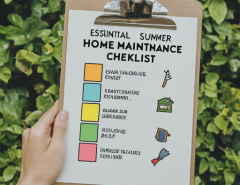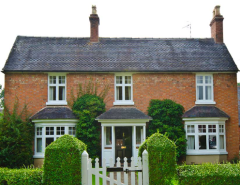From hard-earned lay ins to the extra leisure and travel time, there’s lots to look forward to in retirement. One thing some people prioritise is renovating their home, and after years of busy working weeks and active weekends, you’re finally free to plan and execute the improvements you’ve been dreaming of.
UK homeowners have spent more on home renovation projects recently, with key focus areas including kitchens and outdoor areas. But your priorities might be a little different at this stage in your life, and you’ll want to make sure you give any updates the careful consideration they need.
Below, read our practical tips for renovating your home during retirement.
Prioritise what needs improving
From minor purchases to major overhauls, you might have a long list of things you want to change about your home. But instead of taking on too many things at once, create a plan of what needs to come first so you can give it your full attention, as well as what repairs could be covered under your existing homeowners insurance policy or home warranty plan.
That might mean renovating your garden to make the most of the sun and attract wildlife. Alternatively, you could decide a new and more accessible bathroom is on the cards.
Think about how you’ll fund it
Having worked for longer and possibly had children reach working age, many retirees have more disposable cash than younger homeowners. But you’ll still need to create a budget and think about where the money for your project is coming from now your income has dropped.
If you’re over 55 and planning major work, one option is to use equity release to fund your home renovations. It’s a smart way to release cash tied up in your property, though it’s wise to consult a financial adviser first.
Compare contractors
You might want to do much of the work yourself now you have the time. But with thousands of people admitted to hospital following DIY or gardening accidents in 2020/21, it makes sense to hire professionals for the trickier stuff.
Make sure to research multiple companies in your local area by reading reviews, looking at examples of their work and getting quotes. Ideally, you’ll be able to go with a recommendation from family or friends.
Think about the future
You might not be ready to think about later life just yet, and you might not need to. But thinking about accessibility early will make your life easier for years to come, and save you hassle later down the line.
Features like walk-in baths, accessible kitchen cupboards and outdoor handrails can all help you live with a little less friction. Again, consulting an expert here might be the best way to maximise your investment.
Have you weighed up these points yet? There’s no rush now you’re retired, but putting adequate time into planning will help you achieve better results.




